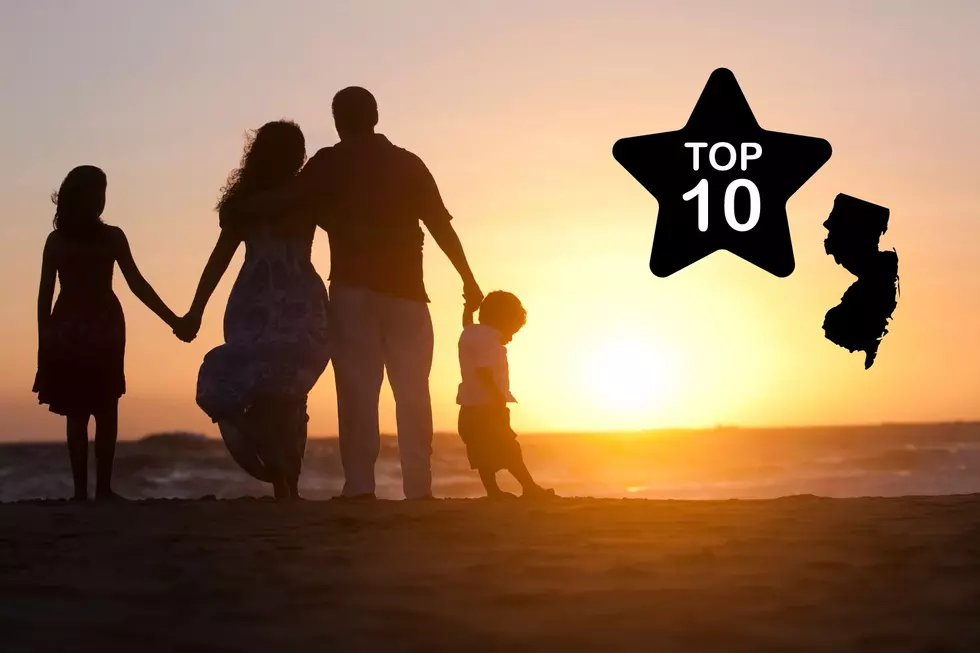Rehabbing in Jail: An exclusive interview inside the Monmouth County Correctional Institution
Part of being in prison is going through the rehab process so that upon release an inmate is less likely or unlikely to encounter the demons that got that person into trouble in the first place. On Day Three of our series about incarcerated life at the Monmouth County Correctional Institute, we learn about the rehab plan.
Inmates at the MCCI are there on short-term sentences for minor offenses, however, it also houses individuals convicted of more serious crimes like murder for a short while while they await trial or transfer to another prison.
As we dive into Day Three, we learn more about the rehab services offered at the MCCI which is a jail but also a correctional institution designed by its name to offer rehab to correct the behaviors and wrongdoings of the inmates so that when they are released, they're more positive and law abiding members of society.
Monmouth County Sheriff Shaun Golden says a key part of rehab is education where inmates can earn a G.E.D. and take a crash course through high school.
"We're committed to affording education. With all of our computer technology, they certainly have the research material and educational material they can use," Golden said. "The library I think is second to none when it comes to county jails and what's afford to them (inmates)."
They also have substance abuse counselors at the MCCI as well as psychological and medical services to help in the rehab process.
Depending on the severity of the addiction, should some inmates be mandated to stay in prison or with rehab services to make sure they get clean?
Golden says he's fielded those kind of requests.
"I've had parents call me up as the Sheriff and say, 'hey, my son or daughter is in your facility, can you keep them?', and that's something we can't do in terms of stretching the law," Golden said. "There's nothing more heartbreaking from a Sheriff's point of view then saying 'your son or daughter is going to be released and we don't have any resources available to them'."
That led to the creation of the their 'Next Steps' Program which helps drug offenders get clean and by working with the NJ ReEntry Corporation, find housing or get job training and find employment.
"An estimated 76 percent of the individuals booked into New Jersey county correctional facilities have a substance abuse disorder," Monmouth County Sheriff's Office.
"We have been sending our referrals and resources to the NJ ReEntry Corporation for those kind of resources that they (inmates) need to be successful," Golden said.
Their 'Next Steps' Opioid Diversion Program and Mobile One Unit (introduced in August of 2018) have become the most effective approach in the rehab process at the MCCI in helping an inmate reform into someone who won't be tempted to listen to the demons who got them incarcerated.
Article continues below the video about the 'Next Steps' Opioids Diversion Program introduced in 2018:
The Mobile One Unit travels into communities several times a week, staffed with a sheriff’s officer, a certified peer recovery specialist and a licensed clinician who will connect individuals with substance use disorder and family members to immediate services, treatment facilities and Naloxone training.
To date, the number of lives saved has increased in Monmouth County.
"We've had over 450 people since August here, so you're talking one-quarter of last year from August thru December of 2018," Golden said. "We've touched 450 discharges here at the Monmouth County Correctional Institute, 380/390 of them have been identified as needing resources and 160-plus referrals are enrolled into a short-term/long-term recovery program."
Golden adds that inmates can sign-up to be checked on and someone will reach out to them to make sure they're attending recovery meetings.
"It's about tracking the individuals. They sign up to be tracked so that (someone might say) 'hey, you haven't shown up to your short term recovery program, you haven't shown up to the reentry corporation'...and those are some of the key components. We want to be sure they get the resources they need and we'll even drive them right over there (NJ ReEntry Corporation) and make sure they have a seat at the table over there."
Another treatment option program rolled out in Monmouth County late in 2018 was the Cuffs to Beds Opioid Diversion Program which gives certain drug offenders a chance to accept treatment and avoid the criminal justice system.
If they are successful at kicking their habit, it could result in downgraded or dropped charges.
It's similar to the Blue Hart Program in Ocean County.
"There's a response team that is being called out so when the officer is interacting with an someone at the local police department, (Howell, Hazlet, Keansburg and Middletown are some of the departments who have enrolled in the Cuffs to Beds program) and that person is sitting there handcuffed in the holding cell and being processed on a summons and is probably going to be released without bail and doesn't make it to our facility here, they're asked if they have a problem with addiction," Golden said. "A response team then goes to headquarters and offers them similar services that we offer here. The Prosecutor (Chris Gramiccioni) has done a tremendous job with the police chiefs out in the field."
Part of the rehab process that has helped him get clean behind bars are peer support groups and N.A. Meetings, which he plans to continue after his release and encourages others in a similar position to do the same.
"For most addicts, it's mostly the rest of your life (going to N.A. meetings). You have to keep with it, you have to keep on top of yourself as far as going to the meetings," Arroyo said. "Sometimes you don't want to go...you come home from work and you're tired...you got to make those meetings, that's the biggest thing is making those meetings."
One reason it's important to stay with the meetings is in part his fear of relapsing again.
"I always fear that, it's one of my biggest fears but I just have to keep my head up and keeping looking forward," Arroyo said.
The number one way he says to get rid of temptation is by eliminating the people or things in your life that bring you to that place.
"You try to stay away from them but they always come back and it's hard to disassociate yourself from them but that's one thing that people have to do. If you really want this to work you have to say, 'look man, our time together was good but it's time for me to move on', and that's what I plan on doing when I am release," Arroyo said. "Get a whole new crowd of friends as far as people that are in the room with you and living the sober life."
Arroyo also recently received his G.E.D. at the MCCI on November 29, 2018.
"They give you everything...English, History, Science, Math...and all the basics," Arroyo said. "It's like taking four years of high school and putting it into two or three months."
He says he plans to pursue a college degree in the future and become a physical therapist.
"I like helping people, so I'm going to try that," Arroyo said.
To learn more about the Monmouth County Next Step recovery program, visit the MCSO website.
*On Day Four of our series on Prison Life, Sheriff Shaun Golden explains how Bail Reform has complicated the rehab process for drug offenders.
More From 92.7 WOBM









